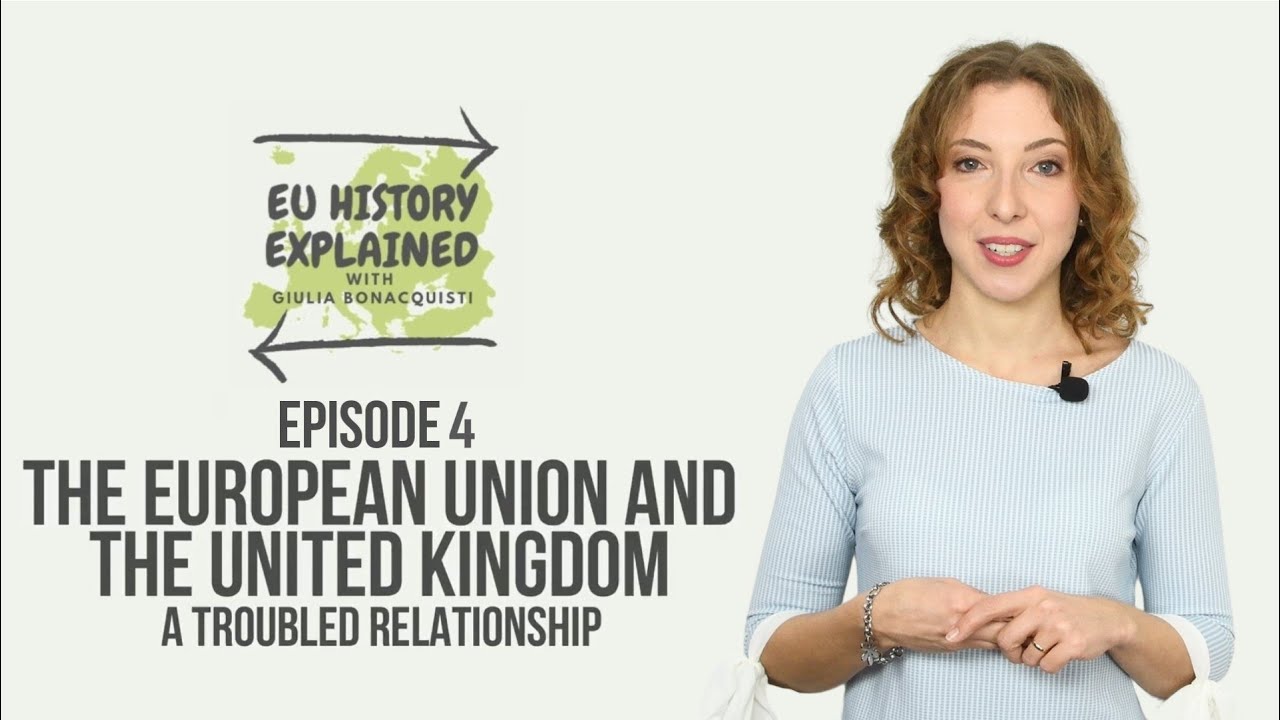5 minutes pour décrypter le Brexit
Summary
TLDRThe video explains the debate surrounding Brexit, the UK's vote on whether to remain in the European Union. The pro-Brexit camp, led by figures like Nigel Farage and Boris Johnson, argues that the EU is costly, controls immigration, and lacks democratic accountability. They also believe the UK could thrive outside the EU. On the other side, supporters of staying in the EU, including David Cameron and the Labour Party, argue that leaving would harm the economy, increase trade barriers, and disrupt immigration cooperation. The video covers the key arguments and the political implications of this historic decision.
Takeaways
- 😀 The UK is holding a referendum on whether to leave the European Union, known as 'Brexit', on June 23.
- 😀 The pro-Brexit campaign, led by UKIP and Boris Johnson, argues that the UK pays more to the EU than it receives, costing £10 billion annually.
- 😀 One key argument for Brexit is regaining control over immigration, particularly from Eastern Europe, and limiting EU immigration.
- 😀 Pro-Brexit supporters criticize the EU for its lack of democracy and excessive bureaucracy, advocating for greater UK sovereignty.
- 😀 The pro-EU campaign, led by David Cameron and the Labour Party, argues that the UK benefits economically from being in the EU, especially in terms of trade.
- 😀 Pro-EU supporters emphasize that leaving the EU would result in customs duties, economic losses, and reduced trade.
- 😀 Immigration is seen as a benefit by pro-EU supporters, with migrants contributing more to the economy than they cost in services.
- 😀 Pro-EU supporters argue that the EU provides necessary cooperation on immigration, especially regarding refugees.
- 😀 Labour leader Jeremy Corbyn opposes the EU's current state but believes in reforming it rather than leaving the union altogether.
- 😀 David Cameron played a key role in negotiating a 'special status' for the UK within the EU, but his credibility has been damaged by the Panama Papers scandal.
- 😀 The Brexit vote is highly uncertain, with polls showing a near-equal split between those for and against leaving the EU.
- 😀 Many fear that Brexit could trigger a domino effect, encouraging other Eurosceptic countries to follow suit and leave the EU.
Q & A
What is Brexit and when did the UK vote on it?
-Brexit refers to the UK's decision to leave the European Union, which was decided through a referendum held on June 23, 2016.
Who promised the Brexit vote and why?
-The Brexit vote was a campaign promise made by David Cameron, the Prime Minister at the time, as part of his political agenda.
What were the two main campaigns during the Brexit referendum?
-The two main campaigns were 'The In Campaign' advocating for the UK to remain in the EU, and 'Vote Leave' supporting the UK's exit from the EU.
What is the primary economic argument put forward by pro-Brexit supporters?
-Pro-Brexit supporters argue that the UK spends too much on EU membership (£10 billion per year) and that this money could be reinvested in the British economy, benefiting the country more than remaining in the EU.
How does immigration factor into the Brexit debate?
-Immigration, particularly from Eastern Europe, is a major concern for Brexit supporters, who believe that leaving the EU would allow the UK to regain control over its borders and reduce uncontrolled immigration.
What is the stance of the pro-EU camp regarding immigration?
-Pro-EU supporters argue that immigration from the EU is economically beneficial, with migrants contributing more in taxes than they cost. They also view the EU's handling of immigration as more effective.
Why do pro-EU supporters believe it is important for the UK to remain in the EU?
-Pro-EU supporters argue that leaving the EU would harm the UK economically, as the EU is the country's largest economic partner. They also stress that EU membership provides advantages such as free trade and cooperation on issues like migration.
What role did David Cameron play in the Brexit debate?
-David Cameron played a key role as the Prime Minister supporting the UK's continued membership in the EU. He attempted to secure a special status for the UK within the EU to make staying more appealing to voters.
What was Jeremy Corbyn's stance on Brexit?
-Jeremy Corbyn, leader of the Labour Party, opposed the EU's current state but did not support Brexit. He advocated for reforming the EU to make it more socially oriented, rather than leaving the union altogether.
What concerns did some people have about Brexit potentially leading to more countries leaving the EU?
-There were fears that if the UK left the EU, it could inspire other Eurosceptic countries to follow suit, leading to a snowball effect of exits from the European Union.
Outlines

This section is available to paid users only. Please upgrade to access this part.
Upgrade NowMindmap

This section is available to paid users only. Please upgrade to access this part.
Upgrade NowKeywords

This section is available to paid users only. Please upgrade to access this part.
Upgrade NowHighlights

This section is available to paid users only. Please upgrade to access this part.
Upgrade NowTranscripts

This section is available to paid users only. Please upgrade to access this part.
Upgrade NowBrowse More Related Video

The European Union & the United Kingdom: A Troubled Relationship | EU History Explained Episode 4

Brexit cost the UK billions in lost trade and tax revenues, research finds | ITV News

Relations Paris - Londres : des origines à Charles III - Le dessous des cartes - L'essentiel | ARTE

Nigel Farage’s final speech to European Parliament cut short after he waves flag

The Fall of the British Economy? | Economic Case study

GROUP 3 TOPIC: BREXIT AND BUSINESS EFFECTS BACORE 6
5.0 / 5 (0 votes)